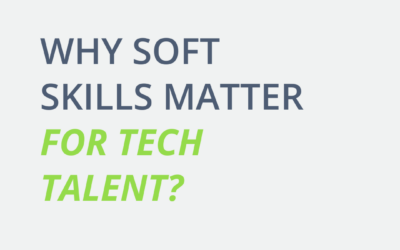This article has been written for Forbes and can be accessed via following link:
How To Use RPA And AI For Project Management
By: Jahn Karsybaev
CTO Executive Search at Prosource IT – overseeing the company’s IT Executive Search and specialized IT Recruitment division in North America.
Advanced technologies in robotic process automation (RPA) such as AI, machine learning, cognitive computing and pattern matching have been transforming how we manage projects. Whether you are a program manager responsible for the portfolio of initiatives in healthcare or a technical project manager overseeing the redeployment of an enterprise resource planning (ERP) solution, you need to understand key elements of advanced technologies such as machine learning and AI so you can spend less time on planning and more time on execution.
As a project manager who has led project management offices for Fortune 500 organizations for over 12 years, I’ve experienced firsthand the various iterations of this trade transformation. Having credentials such as PMP, ACP and Six Sigma is a proven way to demonstrate your commitment to project management as a profession, but I am also a strong believer that adapting and staying ahead of the latest trends in technology will help you continue to deliver value as a project manager.
Here, I’ll provide a series of recommendations on best practices and skills required to effectively apply and use advanced technologies for better project delivery. Automation or other advanced technologies such as AI will not replace project management as a practice, but project managers need to evolve and continuously develop their technical skills in order to use these technologies in conjunction with the interpersonal elements of managing projects.
Indeed, there are plenty of areas of the project management or software development life cycle (SDLC) that could be automated, but as we revisit the first proponent of the Agile Manifesto, “Individuals and interactions over processes and tools.”
Critical skills for project managers in advanced technologies
Project managers should continuously enhance their technical expertise and skill set. Even if you’re a nontechnical PM who is working with the business side of the project, you would still benefit greatly from being able to have a meaningful conversation with the development team. RPA technologies such as Automation Anywhere, Blue Prism and UiPath can provide solid frameworks to get introduced to key principles.
Understanding the key principles in the application or system design methodologies can help you manage your projects more efficiently. For instance, when analyzing the proposed solutions for a given design architecture, you can evaluate the overall durations and resources required for a given set of tasks and provide recommendations on estimated timelines and resource capacity.
Some high-level examples of system design methodologies that can provide a framework for further research include object-oriented analysis and design (OOAD) — a method or a framework for designing a business process or a system through visual modeling and one of the popular techniques that the project managers should be familiar with when advancing their skills in RPA — domain-driven design (DDD) and layered application development with layers such as application/presentation, data, services and business.
There are various courses and certifications that may provide for additional knowledge as well as credibility in RPA.
Writing tasks can be challenging for a great majority of people. When I’ve got to know that I must write a dissertation I’ve decided that I must use https://writemydissertationforme.co.uk/buy-dissertation/ educational resource. Here I can buy dissertation online on any topic, which is beneficial for me.
Resource management with AI and ML
Resource planning and resource capacity modeling are the most critical phases in the project management life cycle. Many companies have well-defined databases of specific roles and preestablished templates with MS Project for project managers, which provide for a solid framework to analyze the data for potential automation. Whether you need to crash the schedule or fast-track it, AI can be a powerful tool in creating predictive models based on the historical performance of similar tasks. However, this would require a diligent and consistent initiative to create a historical database of all past successful and failed projects.
RPA relies on historical data, and project managers need to drive the closing phases of each project with due diligence. Consequently, when certain repetitive tasks are automated, your staff is left with more time to make project-centric decisions that positively influence its delivery.
There are various recommendations for project managers who are taking on projects in advanced technologies or looking to transition into leading the companywide transformation initiatives. Whether you are leading a retrospective session with your Agile team or a lessons-learned committee upon completion of a project, it is imperative to create a repository of historical data used in each project.
RPA and AI should both go through the five lean principles: identify value, map the value stream, create the flow, establish pull and seek perfection. Each PM who is looking to adopt RPA should aim to adapt to some of these principles of lean in order to create a more robust framework for managing RPA projects.
In summary
Whether you are leading a small upgrade project for the latest software update or spearheading a companywide ERP redeployment initiative, identifying opportunities for automation and process improvement is critical for future success. We continuously identify tools and methods for project managers such as templates for resource capacity planning and modeling or a predefined set of automated tasks on project plans as well as define critical-to-quality (CTQ) skills for PMs when sourcing for the latest candidates for an assigned project.
Project managers play an integral part in driving these initiatives and making sure that each phase of the project life cycle is consistently adhered to. Without the historical data and lessons learned, RPA and other advanced technologies will be challenging to implement and adapt.
________________________________________________________________________________________
Forbes Technology Council is an invitation-only community for world-class CIOs, CTOs and technology executives. Do I qualify?
________________________________________________________________________________________
Jahn Karsybaev
CTO, Executive Search at Prosource IT – overseeing the company’s IT Executive Search & specialized IT Recruitment division in North America. Read Jahn Karsybaev’s full executive profile here.
What’s the latest?
Launch Your Tech Career: Top Entry-Level IT Jobs for 2024
The tech industry is growing, and with it comes a lott of exciting opportunities for newcomers. But if you're just starting out, navigating the...
Finding Your Perfect Tech Talent Match: A Guide to Choosing the Right Nearshore Destination
In todays tech hiring ilandscape, finding top talent can feel like searching for a unicorn. That's where nearshore hiring comes in. By partnering...
Why do Soft Skills Matter for Tech Talent?
In the tech industry it's easy to assume that technical abilities are the sole key to success. While coding skills and domain knowledge are...

